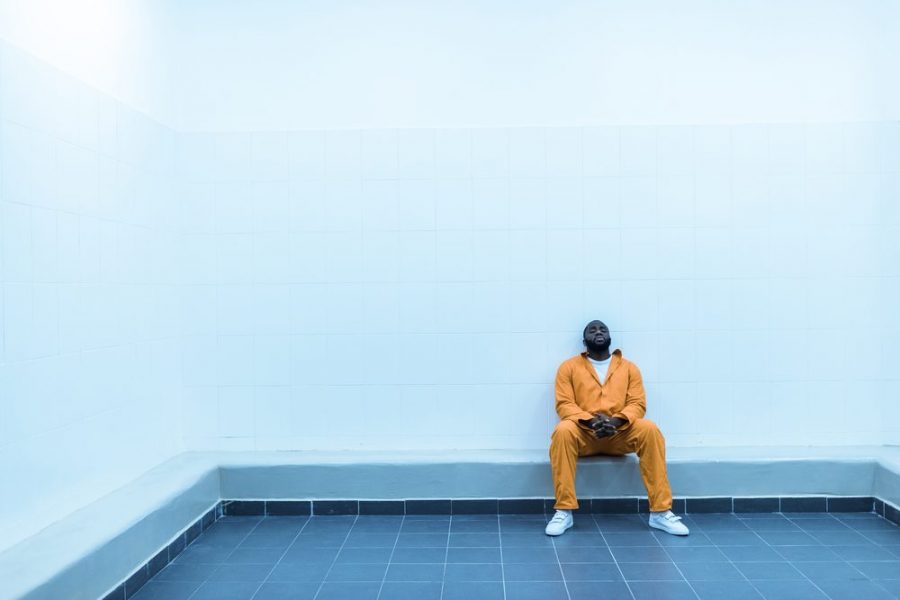Access to ‘prison drugs’ just got a little more interesting: you can possess up to an ounce but you can’t consume it.
In a 20-page ruling, the California Appellate court ruled that some prison drugs, including cannabis, are perfectly legal inside jail walls.
The controversial opinion reversed the position of a lower court and overturned the conviction of five men in the California penal system. It also sets a precedent for cannabis possession within California that will probably have legal ramifications across the country. The state has already legalized recreational cannabis.
The ruling also brings up several important questions about inmates and prison drugs. These could (and probably should) re-shape our understanding of incarceration and the kind of medication prisoners should be able to access while paying their debt to society.
The California Case
According to Golden State law, possessing less than an ounce of cannabis is legal within the state. The latest ruling extends the boundaries of that ruling. It means that prison inmates have the same cannabis right to possession as free people.

Prisoners do not, however, possess the right to actually take cannabis. Ingesting or smoking cannabis is jail is strictly prohibited by law. But the California State Code stays silent on possession, which is why the appellate court ruled in favor of the five men who were found possessing the substance. Consumption charges probably would’ve stuck.
Prison Drugs or Pharmaceutical Access?
The situation in California is a good reminder for lawmakers to be extra careful in crafting cannabis laws. While notoriously liberal California may have a sympathetic judicial branch, it’s just as likely that some less-than-blue state judges could interpret vague laws in a more anti-cannabis vein. Of course, that extends to more than just prison drugs.
Research backs up cannabis’s many therapeutic purposes. Mostly, cannabis therapy can happen without any side effects. But some side effects of the active ingredients THC and CBD may actually be conducive to prison life. What warden doesn’t want calmer, less anxious inmates?
It’s also important to consider which kinds of medicines are available to American inmates. Incarcerated individuals have an above-average chance of having infectious diseases, hypertensions, asthma, arthritis, mental illness, and substance use disorders. Prisons have a legal obligation to treat the people in their facilities. And yet very little information regarding the purchasing habits of prisons is publicly available.
The Pew Charitable Trusts, however, managed to uncover a few statistics. Among them, many prisons say that pharmaceutical drug costs are the number one expense of health spending. And, as prescription drug prices continue to soar despite political promises, it’s certain that medications are eating up the budgets of prisoners across the United States.
Cannabis, then, seems like a natural answer to two problems at once. It may be both cheaper and more cost effective than many of the pills purchased by Medicare and Medicaid. This is because cannabis can ease the symptoms of multiple conditions. And, thanks to its chemical makeup, it’s less likely to react poorly with other medications. This makes it ideal for a high-risk population that needs more medical attention than the average American.
Prison Drugs: Medical, Not Recreational
If jails opted for cannabis-based medicine, it may solve a lot of problems. Yet, it won’t solve the most-talked about issue when it comes to prison drugs. When normal people hear “prison drugs” they think of recreational use — not prescription.
Of course, we deny prisoners freedom on account of their misdeeds. But they’re not denied every freedom. We will owe them basic health, sanitation, and well-being. In other words, they’re entitled to basic healthcare. And increasingly, cannabis is basic healthcare.
Taking that into consideration, is it so wrong to think it might be OK for inmates to consume legal cannabis? We’ve already covered the unintentional upside of taking cannabis: a more mellow demeanor, happy feelings, enhanced creativity, reduced anxiety.

Doubts About Prison Cannabis
The downside, it seems, is twofold. First, who would pay for such things? If the American tax system is already paying for medication, then what’s the difference in switching out one medication for another, healthier version?
The bigger problem is probably the “optics” of it. There’s already an idea permeating some political discourse that prisons aren’t harsh enough. This is despite evidence showing that prisons and jails are hells on earth. They’re overcrowded, underfunded, decrepit, and only getting worse.
It’s enough to give anyone anxiety. And perhaps if we’re causing the problem, we have an obligation to fix it. Giving cannabis to prisoners, or allowing them to purchase it, legally and safely, and then allowing them to actually consume it, may just be our ticket to a better society. Proper rehabilitation, after all, leads to dramatically reduced rates of reoffending. The legal precedent set up by this case has set the stage for meaningful change in prison healthcare.





